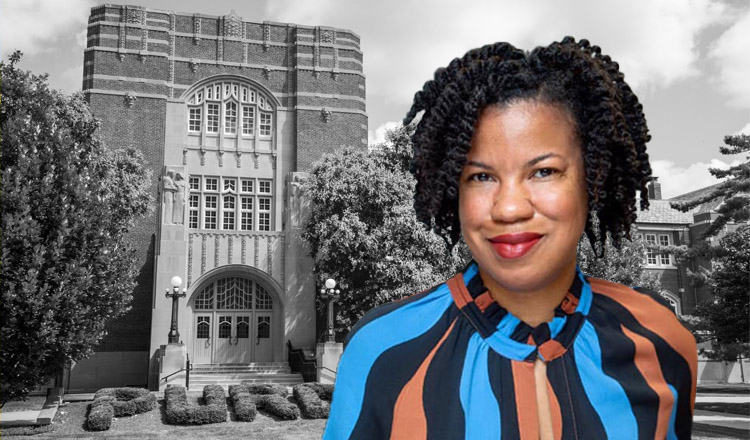As an undergraduate, Dwana Franklin-Davis (M’01) found the academic standards of Purdue to be rigorous, but they helped prepare her for her future career. She initially enrolled as a computer science major, where she was often the only black woman in class, which made establishing her place in that academic community daunting.
“There wasn’t a community that completely understood the nuances of what I was experiencing on a daily basis,” Franklin-Davis says. “I eventually transferred to the Krannert School of Management where I decided to apply more of a business focus to my technology degree. Shifting focus, along with supportive faculty and staff, helped me to thrive at Purdue and along my new journey.”
She also found community outside the classroom as a resident assistant for Shreve Hall, a member of the National Society of Black Engineers, and managing the website for the Black Cultural Center. During her freshman year, Franklin-Davis was recommended for a summer internship at IBM after a College of Science alumna asked for student candidates.
“My IBM internship was the experience that propelled me to future internships and eventually a successful career in tech,” Franklin-Davis says. “IT runs in my blood. My father worked as a tech support lab manager for Atari and Bally and created an arcade system in our home. My mother had a long career at HP. My brother manages infrastructure for a university in the Midwest.”
After graduating from Purdue, Franklin-Davis earned a master’s of information management from Washington University. She’s now chief executive officer of the Reboot Representation Tech Coalition based in New York City. A visionary, collaborative, and compelling executive, Franklin-Davis leads the coalition in its mission to close the gender gap in tech by doubling the number of Black, Latinx, and Native American women earning bachelor’s degrees in computing by 2025.
Franklin-Davis joined Reboot Representation after 13 years at Mastercard, where she was a founding member of the Leveraging Employees of African Decent (LEAD) business resource group, serving on its steering committee from 2008–2011. She also acted as the St. Louis chapter president for the Black Data Processing Associates, which is focused on enabling the upward mobility of African Americans and other underrepresented groups in technology fields, for nearly two years.
“Gender and racial equity is a moral imperative as much as it is a business one,” Franklin-Davis says. “Companies, academics, advocates and other key stakeholders need to continue to push for structural changes that fold both gender and racial equity into the tech industry’s DNA. Technology is our future and transcends industry. Underrepresented communities should have equal opportunity to participate.”

